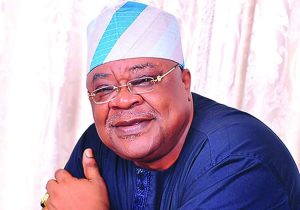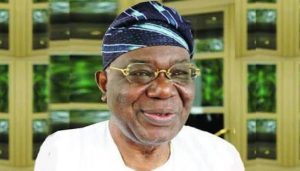

Tanzanian President, John Magufuli, who was rumored to be “missing” for three weeks has passed away. His death was announced putting an end to weeks of speculation about his health. The country’s vice-president, Samia Suluhu Hassan, made this known in a televised statement: “Today, March 17th this year, at 6pm, we lost our courageous leader, President John Magufuli.”
Magufuli was speculated to have disappeared from public glare because he was chronically down with COVID-19. He was flown to Kenya for treatment. The government, however, denied all the speculations.
Vice-president, Samia Suluhu Hassan, maintained that Magufuli’s death occurred at a hospital in the commercial capital, Dar es Salaam, as a result of heart complications or what is known in medical terms as “chronic atrial fibrillation”. This, according to Hassan, is “a condition that he has had for more than 10 years.”
The fifth president of Tanzania, John Pombe Joseph Magufuli, was born on 29, October 1959. He had a successful political career as seen in his steady rise from just being a member of the country’s parliament to the position of presidency.

He booked his first political seat as a Member of Tanzania’s parliament in 1995 and went on to serve as Deputy Minister of Works from that year to 2000. He was Minister of Works between 2000-2005. Between 2006 to 2008, he served as Minister of Lands and Human Resettlement, and assumed the position as Minister of Livestock and Fishery from 2008 to 2010. As Minister of Transport and Communications, he served his country for another five years from 2010.
During these decades, Magufuli kept a corruption-free record. This is particularly noteworthy in Africa because projects which often require huge investments and spread over reasonable time are generally associated with corruption. Magufili handled several of such projects when Tanzania was deeply steeped in the sea of corruption between 2005 and 2015. Within that space, various corruption scandals erupted, but he was never found wanting.
Magufuli’s good record, and his reputation for getting things done, was particularly instrumental in the 2015 Tanzanian general election campaign. Part of his manifesto included the promise to fight corruption, ensure discipline in the civil service, and tackle the issue of unemployment, especially among the youth.
He was elected president on 5, November 2015. Owing to his many reforms and people-oriented programmes, he was reelected in 2020. He was a respected phenomenon for his anti-corruption campaign and push to cut down the cost of governance.
As president of Tanzania, Magufuli imposed drastic measures to cut down the costs of governance. Some of these measures include his use of cheaper cars for transportation, and discouraging the wasteful display of opulence that usually accompany government events and parties. One of the ways he lived by example was in the budget of state dinner that inaugurates new governments and parliament sessions. He slashed the budget to a ridiculous sum that shocked the nation.
Magufili didn’t just stop there. He went on to ban frivolous foreign trips by government officials. He was responsible for the reduction to four from fifty, the delegation from Tanzania for the Commonwealth. He also rescinded the country’s sponsorship of a World AIDS Day exhibition, using the money instead to purchase anti-retroviral drugs for people living with AIDS. He reduced the size of his cabinet from thirty ministries to nineteen.
His cabinet was not the only thing he reduced. Another noble thing Magufuli did was to reduce his own salary as president. He reduced it from $15,000 to $4,000. He was roundly applauded across the country.
A particular statement is credited to him was made in 2015 following his suspension of the country’s independence festivities in favour of a national cleanup exercise targeted at reducing the spread of cholera: “It is so shameful that we are spending huge amounts of money to celebrate 54 years of independence when our people are dying of cholera”. The high-point of this was his participation in the exercise, and the cost savings which were invested in the improvement of hospitals and sanitation across the country.
In 2016, he introduced free education for all the government schools in the country. Even the opposition acknowledged his anti-corruption efforts especially in the area of mining which removed the right of mining companies to resort to international arbitration. A leader of the ACN opposition party, Zitto Kabwe, averred that Magufuli’s anti-corruption efforts had “frightened investors, who now fear they will have to deal with Tanzanian justice.”
Magufuli wasn’t the typical leader who is only seen on TV or heard on the radio. He was the type that identified with the people. He would go on long road trips which involved multiple stops so he could address the public and hear some of the issues they wanted him to look at. These trips were often broadcast live on TV and became popular with several Tanzanians who saw them as the perfect opportunity to get instant redress to their problems.
Crowds of people often gathered and shuffled around the presidential convoy under the close watch of heavily armed bodyguards. Those who were determined got a chance to ask him questions, but most people used the opportunity to plead with the president to intervene on a plethora of issues such as delayed road projects, lingering court cases, complaints about water supply, or grievances against local officials.
Magufuli epitomized the values of true leadership scarcely experienced in Africa, and other parts of the world. He wanted progress for his country. He didn’t just talk about it. He fought and worked for it. His many reforms are pointers to his desire to make a change in a space that was incapacitated in several ways.
Read Also: Olufunke Osibodu
It is always a thing of joy and beauty to have such fine leaders as Joseph Magufuli, Chief Lateef Jakande, and a host of others whose contributions to humanity is colossal, and have equally written their name on the sands of time. At the end of the day, life is measured by how much impact we make on society, and the ways in which we helped to make the world a better place. John Magufuli seemingly gave his best shot before dropping the baton to join the saints.
Nelson Okoh

